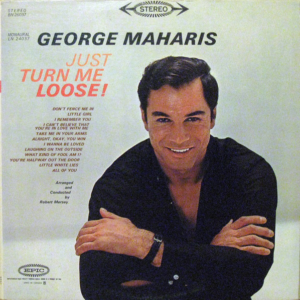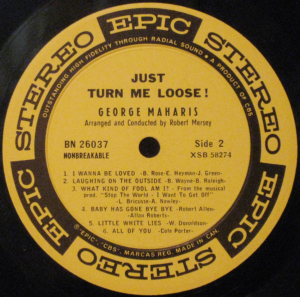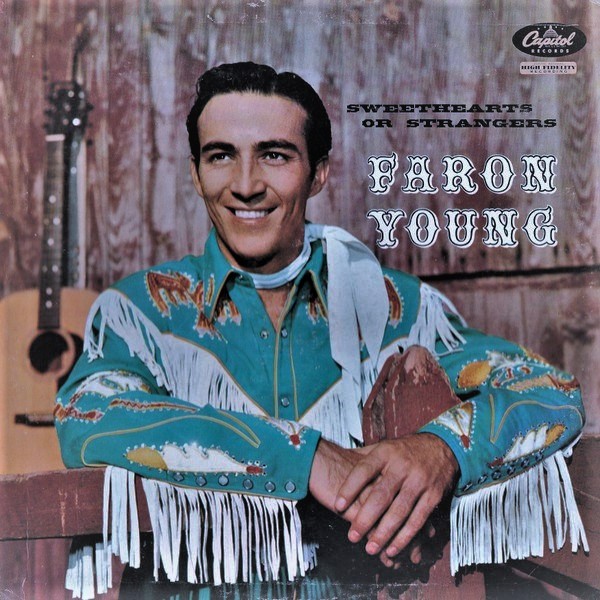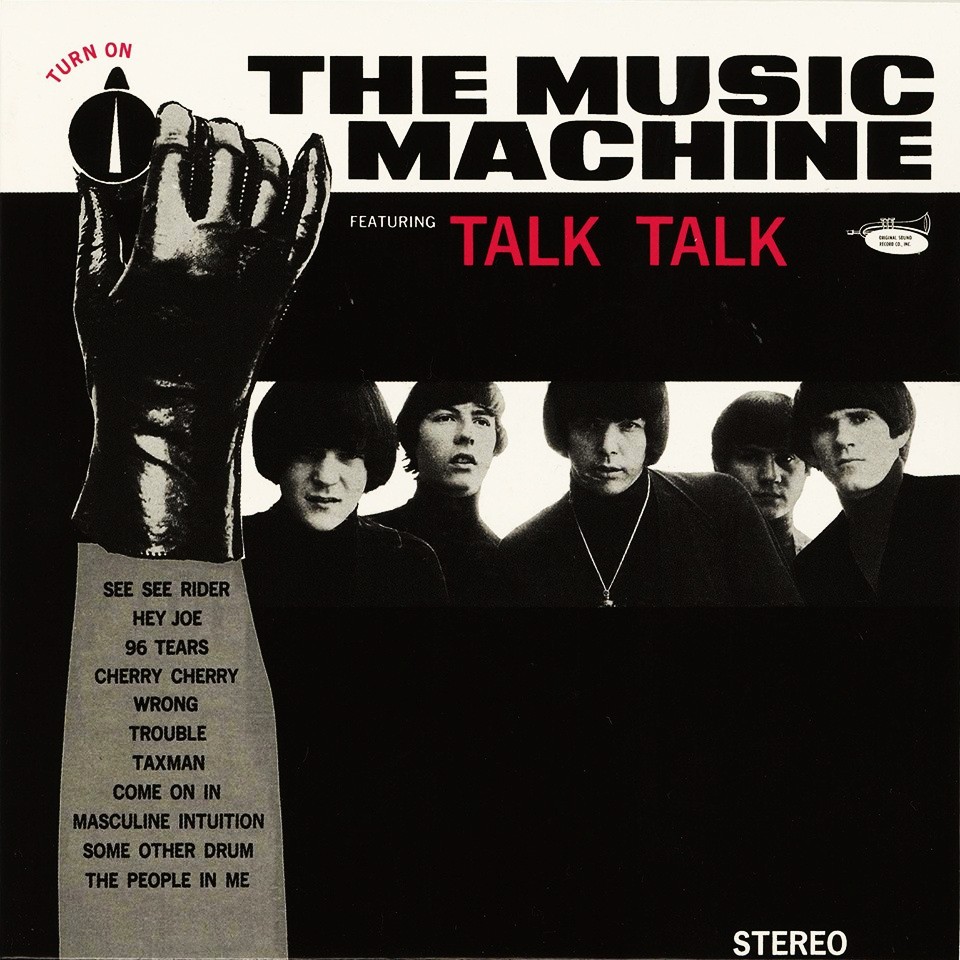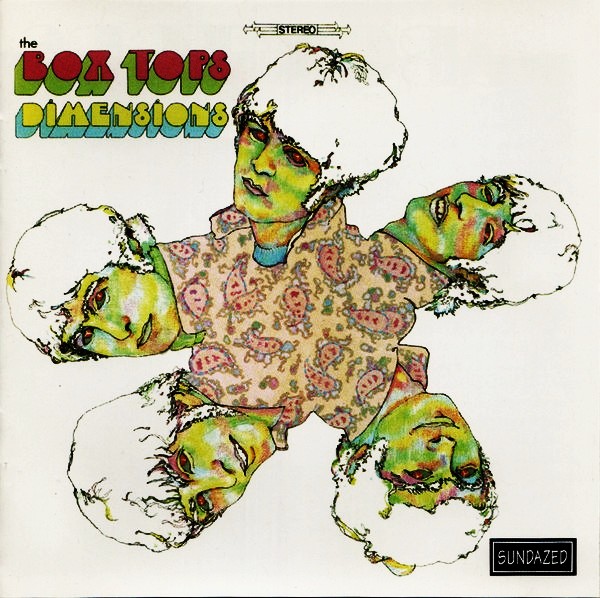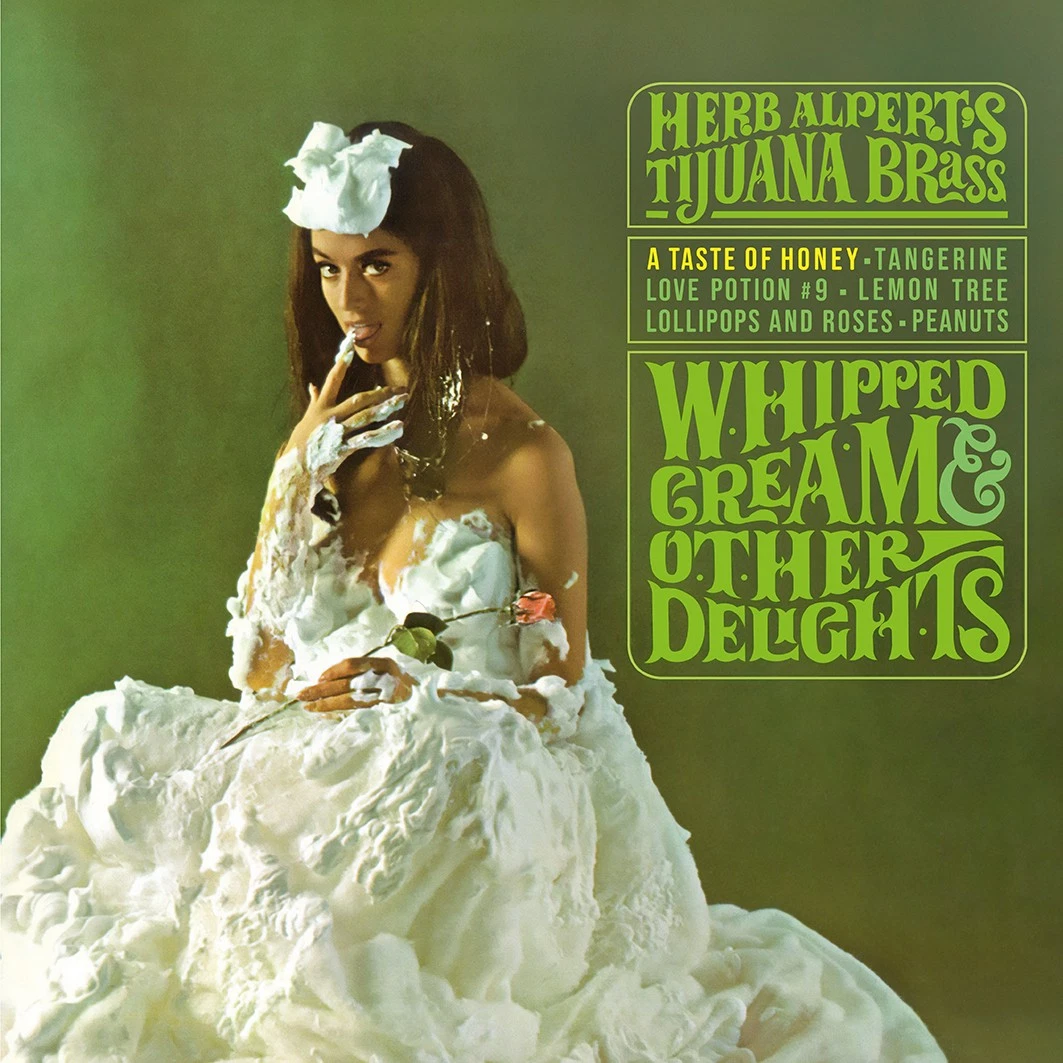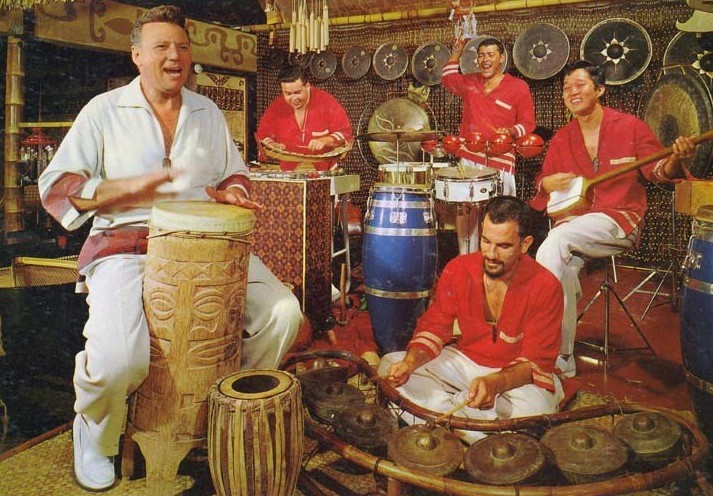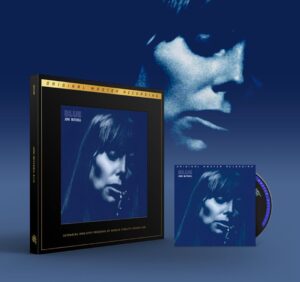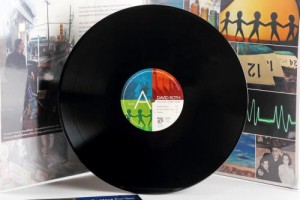I've spent decades searching my butt off for interesting and well-recorded albums, all while some albums, including some really good ones, were just sitting in my path. Just Turn Me Loose (Epic BN 26037) by actor-singer George Maharis (1928-2023) is a prime example of an album that was just sitting and waiting for me to grab it.
Frankly speaking, information on Maharis, which includes the TV show he starred in, Route 66, his work in the early days of TV, his appearance on Judy Garland's TV show, his off-Broadway acting, and the titles of his other albums, is all info that I had to look up. His moment came and went before mine began, so his work in the entertainment world, which appears to be significant, is unknown to me. So the only part of Maharis' career that matters to me is this surprisingly good album, with its surprisingly good sound.
This is the kind of album that has no business being or sounding this good. Side one opens with a happy-go-lucky performance of Cole Porter's "Don't Fence Me In." It's hard for me to think outside of the magnificent recording by Bing Crosby and The Andrew Sisters, but Maharis adds his own gentle-but-swinging flavor to the old standard. It's easy to hear that he's having a ball. The song opens with a happy sounding electric guitar on the right, and a well-rehearsed choir singing ooh-wah-ooh on the left. Maharis is perfectly focussed in the middle. While Maharis doesn't provide the same amount of musical depth that Crosby offers, his lighthearted performance sets the mood for the rest of the album.
Side two opens with a happy song called "I Wanna Be Loved." Perhaps it's my age, or too much childhood exposure to The Beatles and The Rolling Stones, but I don't know any other version of this song. However, I'm perfectly happy having it as my one and only version. And what a good piece of music it is! In addition to Maharis' tasteful vocalizing, we get some lovely saxophones on the left side. I hear tenors and altos, with lots of reedy magic to satisfy the audiophile in me. Pianos and trumpets are on the right, and, of course, Maharis is still in the middle. Perhaps this song is a bit forgettable, but the sound and those awesome sounding saxophones will stick with you after the record is put away.
Side two cut four is my favorite cut on the album. It's a romantic and uplifting ditty called "Baby Has Gone Bye Bye." Again we have a song without a whole lot of depth, but lyrical depth can sometimes be distracting when all you want to do is melt into a music. The song was written by the team of Allan Roberts and Robert Allen (You read that right!), who wrote a lot of songs that are well before my time. I still can't believe that there is no other recorded version of this song, but that's what my research shows. Oh well. It makes for a great listen, and it's also the sonic highpoint of the album. With strings on the left, Maharis in the middle, and vibes and acoustic guitar on the right, this is a perfect example of what I call "stereo perfection." Aside from the vocal reverb that's a little wetter than I'd like, the stereo stage and the warm bass keeps the sound very satisfying.
Side two cut five is a song that I actually know, and I love the way Maharis sings it. The song is "Little White Lies." My favorite version will always be the Herb Alpert arranged recording by Chris Montez. Montez sings it a lot faster, and his version features some crazy good drumming. Maharis has something that Montez doesn't have: brass. Chris Montez sends the kids to a sock hop, while George Maharis performs a slower-but-still-swinging version for the adults.
The sound of this record is excellent. It's what I'd call a solid A, with some cuts sounding closer to A+. You can't mistake it for anything other than a CBS record, as it features the same reverb that was used on Ray Coniff, Miles Davis, Barbra Streisand, Tony Bennett, and Johnny Mathis. However, unlike these very popular artists, this Maharris album has a rich foundation that allows the infamous CBS reverb to sound a bit more like natural hall ambience. Would I like less reverb? Absolutely, but at the same time this album doesn't glare at you when you turn it up. In fact, many of the cuts invite me to crank the volume up. Tony, Miles, and Babs deserved better sound, but at least we get the kind of sound we like on this very cool record.
Good music, excellent sound, and a good singer are the right ingredients for a good record, and this album is a very good record!




